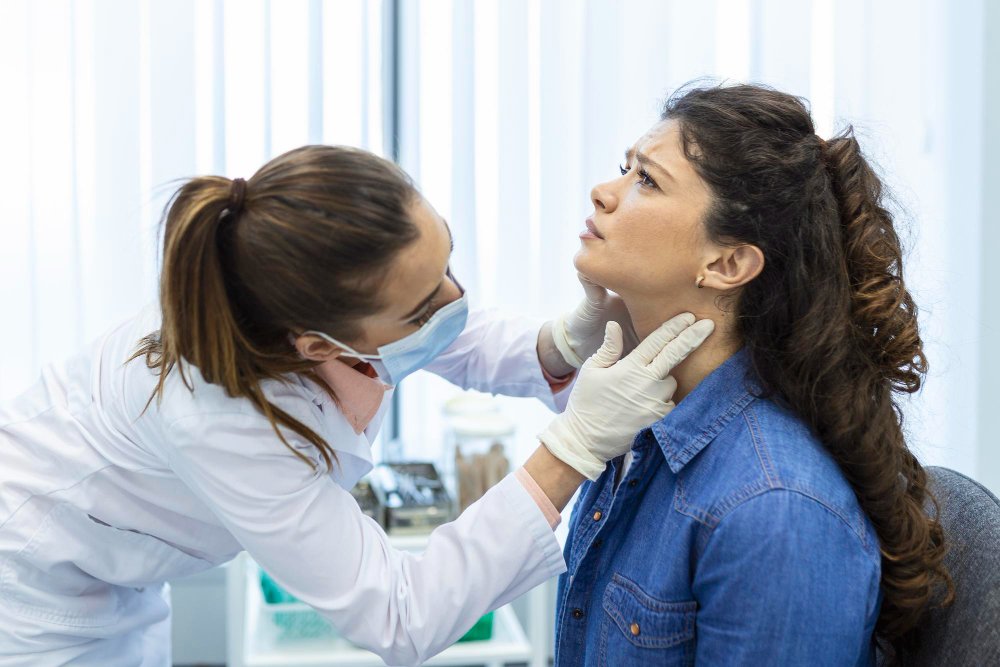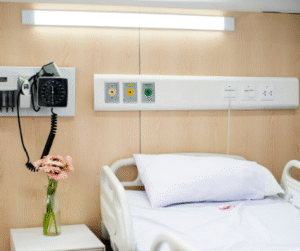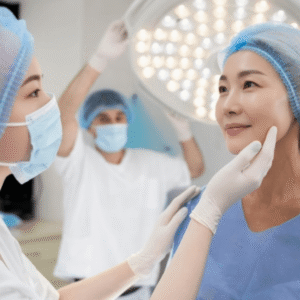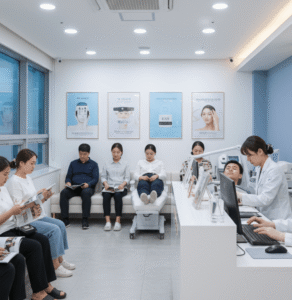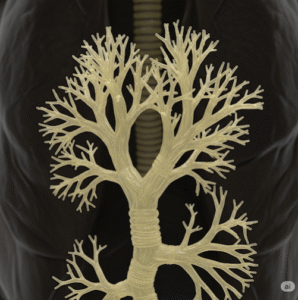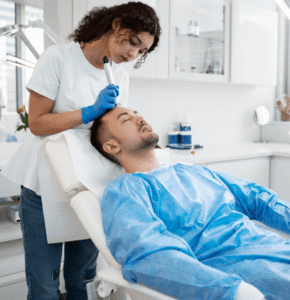Overview
Jaw dislocation, also called temporomandibular joint (TMJ) dislocation, occurs when the lower jaw (mandible) becomes displaced from its normal position in the joint. This can cause pain, difficulty speaking or eating, and facial asymmetry. In South Korea, jaw dislocations are commonly treated in oral and maxillofacial surgery, emergency medicine, and dental clinics, with advanced diagnostic and surgical options available at leading hospitals such as Seoul National University Hospital, Samsung Medical Center, and Asan Medical Center.
What is Jaw Dislocation?
Jaw dislocation occurs when the mandibular condyle moves out of its normal position in the temporomandibular joint, usually forward, backward, or sideways. Dislocations can be acute, resulting from trauma, or chronic/recurrent due to ligament laxity or structural abnormalities. Immediate treatment is important to relieve pain, restore function, and prevent long-term complications.
Symptoms
- Visible misalignment of the jaw
- Difficulty closing or opening the mouth
- Severe pain around the TMJ
- Swelling or tenderness of the jaw
- Difficulty speaking, chewing, or swallowing
- Muscle spasms around the jaw
Causes
- Direct trauma to the jaw (falls, sports injuries, accidents)
- Wide opening of the mouth (yawning, dental procedures)
- Weakness or laxity of ligaments and joint capsule
- Chronic TMJ disorders or structural abnormalities
- Seizures or neuromuscular disorders in rare cases
Risk Factors
- History of previous jaw dislocations
- Participation in contact sports
- Structural jaw abnormalities or hypermobility
- Underlying connective tissue disorders
- Children and elderly individuals due to increased susceptibility to injury
Complications
- Chronic or recurrent dislocations
- Persistent pain and TMJ dysfunction
- Muscle spasms and facial asymmetry
- Osteoarthritis or degenerative changes in the joint
- Difficulty eating, speaking, or maintaining oral hygiene
Prevention
- Avoid excessive wide opening of the mouth
- Use protective gear during contact sports
- Strengthen jaw muscles through physical therapy exercises
- Seek early treatment for TMJ disorders or previous dislocations
- Avoid habits like teeth clenching or chewing hard objects
Treatment Options in Korea
South Korea offers comprehensive care for jaw dislocations through emergency medicine, oral and maxillofacial surgery, and rehabilitation:
- Diagnosis:
- Clinical evaluation and physical examination
- X-rays or CT scans to assess bone alignment and rule out fractures
- MRI in chronic or recurrent cases to evaluate soft tissues
- Non-Surgical Management:
- Manual reduction of the dislocation under local anesthesia or sedation
- Immobilization using bandages or splints for several days
- Pain management with NSAIDs or muscle relaxants
- Physical therapy to restore jaw mobility and strength
- Surgical Intervention:
- Reserved for chronic, recurrent, or complicated dislocations
- Procedures may include ligament repair, joint reconstruction, or condylar repositioning
- Specialized centers such as Samsung Medical Center and Asan Medical Center perform advanced maxillofacial surgeries
- Rehabilitation and Follow-Up Care:
- Jaw exercises to improve range of motion and prevent recurrence
- Long-term monitoring of TMJ function
- Guidance on lifestyle modifications and oral habits to reduce risk

